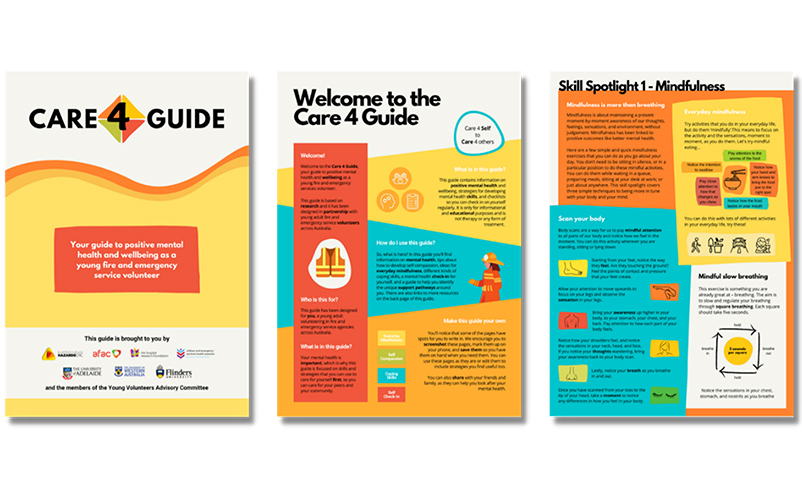In Australia and New Zealand, fire and emergency services organisations call on volunteers to protect local communities. To ensure the viability of these essential resources, it is crucial to involve volunteers in roles that can be sustained.
In recent years, increased attention has been given to mental health and wellbeing for fire and emergency services volunteers, which is an essential element of retention and sustainable engagement. A 2018 study in Australia showed that over half of volunteer fire and emergency services personnel are aged over 55 years.1
It is, therefore, necessary to understand how to attract younger volunteers and how to improve and support the wellbeing of the voluntary workforce. Despite this, to date, there remains a paucity of research, information and practice guidelines on optimal support mechanisms specifically aimed at younger volunteers.
The Positive Mental Health in Young Emergency Service Volunteers research project aimed to understand factors associated with the mental health and wellbeing of young adult volunteers (aged 16–25 years) in fire and emergency services organisations. The project would provide information on mental health outcomes and psychological skills associated with those outcomes. A further aim was to translate results into a wellbeing framework that was applicable and feasible to be implemented across the sector with resources relevant to a young adult cohort.
The project commenced with a rapid systematic review of international literature on the mental health and wellbeing experiences of young adult fire and emergency services personnel. This was accompanied by analysis of data from ‘Answering the Call’1, a 2017 Beyond Blue national mental health and wellbeing survey of police and emergency services. The analysis considered participant volunteers aged between 18 and 25 years as well as data from young adult firefighters aged between 18 and 25 years from the 2016 South Australian Metropolitan Fire Service Health and Wellbeing study.2
To develop an understanding of recent mental health experiences and support needs, an online survey was conducted with current young fire and emergency services volunteers (n=192). This quantitative survey investigated mental health related outcomes, volunteer role experiences (including during the 2019–20 bushfire season) along with the perceived availability and usefulness of support services.
Leadership perspectives were provided through one-on-one semi-structured interviews (n=12) with senior leadership personnel from 12 agencies across Australian state and territory jurisdictions as well as a focus group comprising fire unit leaders and brigade captains. Perspectives on mental health needs, including facilitators and barriers to accessing available supports, were sought from young adult fire and emergency services personnel (n=20). This was achieved via a series of 6 focus groups with representation from all states and territories. Full details of study methodology are available in the final report.3

Example pages from the Care4Guide.
Study outputs
Following the phases of data collection, a knowledge synthesis was undertaken to integrate findings across phases. Results from each phase were tabled collectively to identify converging threads, linking findings across multiple research phases, representing a synthesised understanding of risk, protective and modifiable factors involved in young volunteer mental health and wellbeing. The knowledge synthesis resulted in 3 outputs:
- The Young Volunteer Wellbeing Framework is intended as a best-practice guide for agencies to support practices already in place or provide options to shift practices to promote and maintain the mental health of young volunteers.
- An Agency Implementation Guide to be used to implement the Young Volunteer Wellbeing Framework with indicators intended as examples of possible practices organisations may implement with their own actions to meet relevant goals within the framework.
- Care4Guide to mental health for young fire and emergency service volunteers provides information and tips for volunteers to facilitate positive mental health skills, identify support pathways to promote connections and social support and ways identify and access mental health supports.
Acknowledgments
This study was funded the Bushfire and Natural Hazards Cooperative Research Centre, The Hospital Research Foundation and supported by AFAC. The contribution of the Young Volunteers Advisory Committee is acknowledged for the development of the Care4Guide and thanks are extended to the young fire and emergency services


